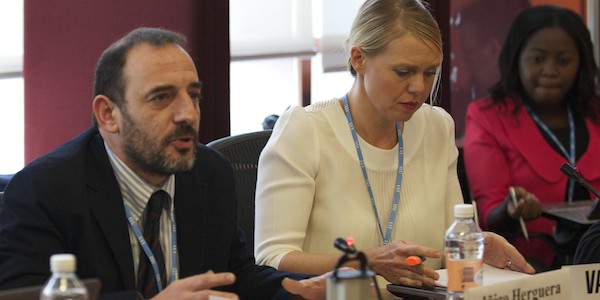 A friend of mine (call him Bob) recently told me that, when it comes to religious doctrine, he lets the experts tell him what’s true. After all, Bob says, the experts have spent years learning how to interpret the Bible, and so we can trust them to tell us the what the Bible says. Bob admits that he has never actually read the Bible for himself. (With all these Scripture experts around, who needs to look at the text for himself?)
A friend of mine (call him Bob) recently told me that, when it comes to religious doctrine, he lets the experts tell him what’s true. After all, Bob says, the experts have spent years learning how to interpret the Bible, and so we can trust them to tell us the what the Bible says. Bob admits that he has never actually read the Bible for himself. (With all these Scripture experts around, who needs to look at the text for himself?)
Given that Bob admitted that experts often disagree, I asked him how we should handle the following scenario: We want to know the truth about a particular issue, so we turn to the experts. Thankfully, we find two of them, with precisely identical, high degrees of academic qualification. The only problem is that these two experts disagree about what the Bible says concerning the doctrine in question. One expert says X, the other says not X. How should we, the genuine inquirers, proceed?
I suggested to Bob that in a case like this, our only recourse is to look to the Bible to see which (if either) of the experts is right. I further suggested that we are in just such a predicament with regard to many (if not all) religious doctrines. Take any doctrine you will, and you will find the experts in disagreement. This is not to say that the experts have nothing helpful to say or that none of them is correct, but rather that we, as honest inquirers, must retain some degree of intellectual independence from the experts’ opinions. (Otherwise we would suffer from a kind of intellectual split-personality disorder.)
There are two extremes with regard to seeking help in finding and understanding biblical truth. One extreme is Bob’s position: We leave it all up to the experts. The other extreme is that we never seek help; we presume that we can do it all ourselves and that knowledge has to be radically original.
Yet the Bible rules out both of these extremes. Bob’s position is ruled out by Acts 17:11, where we read: “Now these Jews were more noble than those in Thessalonica; they received the word with all eagerness, examining the Scriptures daily to see if these things were so.” Notice that the Berean Jews referenced in this verse were double-checking the testimony of apostolic authority itself (the word of Paul and Silas), and were commended for being independently rational.
The other extreme is ruled out by Acts 8:30-31: “So Philip ran to [the Ethiopian Eunuch—CC] and heard him reading Isaiah the prophet and asked, ‘Do you understand what you are reading?” And he said, “How can I, unless someone guides me?’ And he invited Philip to come up and sit with him.” ((See also the example of Apollos in Acts 18:24-28.)) The Ethiopian was not insulted by the suggestion that he might need help in understanding the truth. All of us at one time or another had assistance, and we are grateful for righteous aid in understanding the Scriptures.
Many biblical truths, including those having to do with what a sinner must do in order to become saved, are easily understood. With some other doctrines we often need expert help, but we cannot blindly trust the experts. To do so would not only invite hopeless confusion, but also cause us to miss the treasure of Bible knowledge.